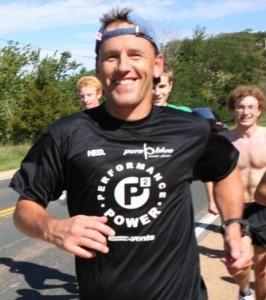Whether you are training for a Get Your Rear in Gear 5K or or prepping for a marathon, an effective warm up will put your best foot forward during training runs. This Ask the Trainer question comes from a runner who wants to be sure he is doing the best possible exercises before he hits the pavement.
Get Your Rear in Gear reader: I’ve read both forward and reverse lunges are good warm-ups for runners. I do both. But is one better than the other? Or do they work different muscles?
Matt Haugen: I would not recommend lunges for a running warm-up, unless they are completed in a slow, controlled motion, and held in a static position for 15+ seconds. You are going to help stretch all of the upper and lower muscles of the legs for sure. For the most effective warm-up, my best choice would be a warm-up that includes slow running for 10 minutes, then some static stretching of the hamstrings and calves (holding each posture for 30 seconds), then return to running and gradually pick-up the pace for another 5 minutes before your key run workout begins. When your run session is complete, include some standing and sitting range of motion stretches (when your muscles are more warmed-up).
Get Your Rear in Gear: Both forward and reverse lunges work the same muscles, however most fitness experts agree that a reverse lunge places less stress on the knee. By stepping backward, you keep the forward knee safely placed over the ankle which allows you to maintain proper alignment. Check out the links below for video instructions on performing a proper lunge and more pre-and post run exercises.
Matt Haugen is a full-time coach who has trained thousands of athletes since 1980. On the community, high school, collegiate, national, and Olympic levels, he has guided athletes to podium finishes and personal best accomplishments. Matt holds a B.A. in Psychology, and M.S. Exercise Science/Sport Psychology from Penn State, and Ph.D. studies (A.B.D.) in Kinesiology/Sport Psychology from the U of Minnesota. He currently trains athletes of all levels through Performance Power (P2) based in St. Paul Minnesota.
Read More:

